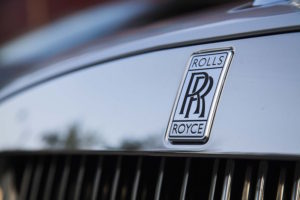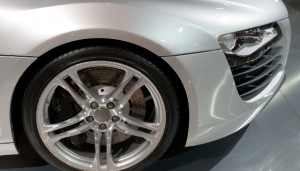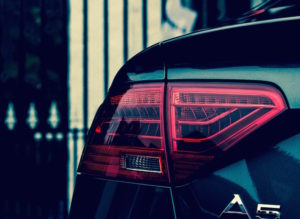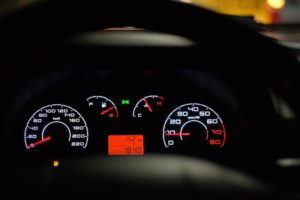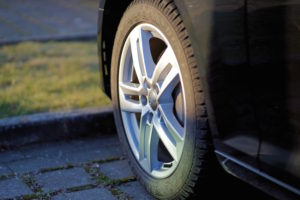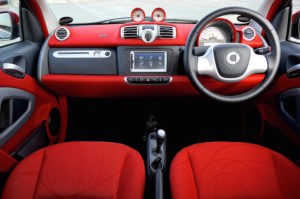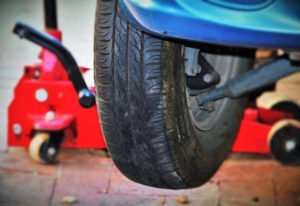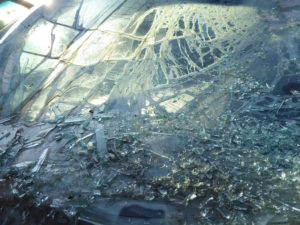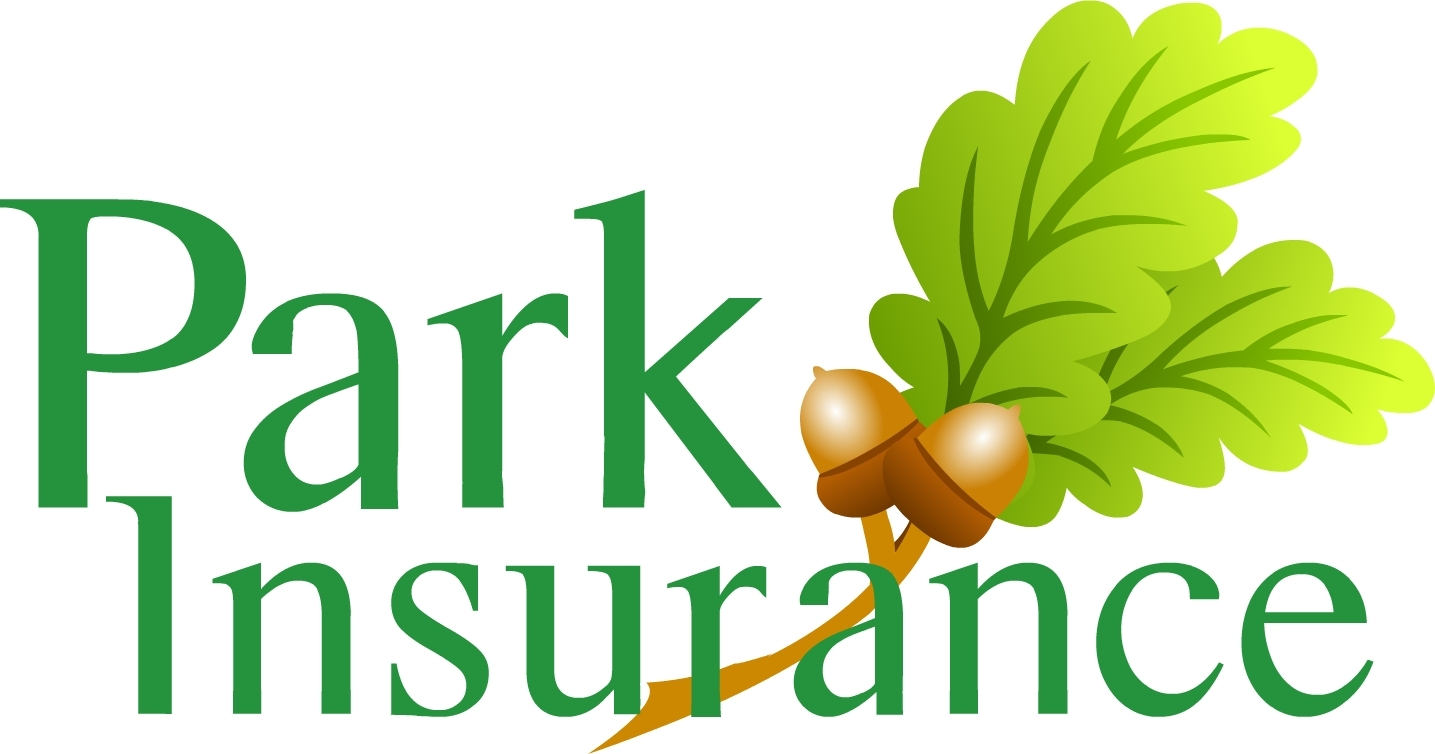VIEW OUR COMMERCIAL
As seen on TV

CHOOSE THE EASY OPTION FOR YOUR INSURANCE, WE’LL GET YOU A QUOTE IN NO TIME AT ALL.
Posts for:
It might come as little surprise that the most expensive car to insure is the ultra-luxury Rolls Royce Wraith. If you’re lucky enough to own one, the annual cost of insurance is a whopping £10,500.
The top 20 most expensive cars to insure list is dominated by supercars and high-end 4x4s. High-performance road rarities, like the Aston Martin Superleggera and Honda NSX, make the top five. But they’re not the only cars that you’ll need deep pockets for when it comes to car insurance. We outline which cars will mean pumped-up premiums and how to get costs down.
A matter of risk
Insurance is all about risk. In the UK, new cars are given an insurance rating from 1 to 50. The lower the rating, the lower your insurance is likely to be. At the other end of the scale, if you buy a car in insurance group 50, you’ll be forking out more.
Generally, the faster the car is, the bigger the risk of an accident occurring. And that means higher premiums for cars with bigger engines and turbo-chargers. Some cars are also more appealing to thieves, and that makes them more expensive to insure.
And there are other things that can make a car more expensive to insure.
Modified cars
Any modifications to a vehicle can push up the price of your premium. This can be cosmetic changes, like a body kit or a wrap, or performance enhancements. Disabled adaptations can also impact on the cost of insurance. That’s because any changes to the factory standard could make the vehicle more costly to repair. Modifications can also make a vehicle a target for thieves.
Imported cars
Insurers crunch data to come up with your premium. If your car is imported, there’s generally less data to analyse. With less information available, insurers generally charge higher premiums.
Future classic cars
Whilst insuring a classic car can often cost less than you may expect, it can be a little trickier with future classics. These are cars that are not old enough to be considered a classic vehicle but are likely to become classics in the future. This means their true value is often higher than the list price. For your peace of mind, you’ll need to find an agreed value policy.
Electric vehicles
Electric vehicles can be more expensive to insure than their diesel or petrol counterparts. This is partly because they cost more to purchase, but is also because they can be more expensive to repair.
The cheapest cars to insure
If finding cheap car insurance is important to you, you might want to consider switching to one of the cheapest cars to insure. According to AutoExpress the cheapest cars to insure include the Nissan Micra 1.0, the Volkswagen Polo 1.0 S and the Skoda Fabia 1.0 S. These are all group one cars, so you can be sure they’ll get you on the road at the lowest price possible.
How to get a better price on car insurance
Saving money on insurance doesn’t stop at the car you own. Whether you’ve got a low group car or one of the most expensive cars to insure, there are some simple steps you can take to get the cheapest car insurance.
- Don’t just accept your renewal quote. Insurance companies rely on us being too busy to change our insurance every year. That means it’s likely that your renewal quote will be higher than you could get if you switch. It’s worth taking time to shop around. You can do this by ringing around insurance companies or filling in forms online. Another option is to use an online price comparison website. Just be wary that some comparison websites might charge more for the same policy than you’d find elsewhere. They also don’t represent every insurance company out there, so you may need to use a couple. And make sure you always read the small print before you buy. Some comparison websites may show you results that don’t match your original search details. They may be low on price, but it can cost a lot more in the long run if you don’t have the cover you expect. Your third option is to use an independent insurance broker like Easy2Insure to do the legwork for you. When you use a broker you only need to give your details once. They then call around a wide choice of insurance companies to find you the best price. They’ll clearly explain what cover you get and help you to find a policy that matches your needs and budget.
- Specify your mileage. If you cover a lower than average mileage each year, make sure you tell your insurance broker. Fewer miles travelled means a lower risk of having an accident, and that translates to lower premiums.
- Consider increasing your excess. The excess is the amount you’ll automatically pay if you make a claim. Normally there will be a set compulsory excess that you have to pay. Insurance companies set these in an effort to reduce the number of costly small claims. You can also opt for additional excess. Generally, the higher your excess, the lower your premium will be. Just make sure you keep it affordable for you.
- Always pay your insurance annually if you can. If you opt to pay monthly for car insurance, you’ll end up paying much more than if you pay in one go. Some insurance companies will charge up to 20% extra for monthly payment plans. So if your basic premium is £500 a year, you’ll end up paying around £600 in monthly instalments.
It’s Easy2Insure your car
We’re here to help you to find the best price on car insurance you can rely on. As part of the trusted Park Insurance group, we use our buying power to negotiate hard on your behalf. That means we can find high-quality insurance to suit your budget from some of the UK’s best insurance companies. Getting a quote is completely free and you’re under no obligation to buy. Call our team on 0800 917 9522 or get a quote today.
When you work as a freelance courier, you can enjoy lots of benefits like the freedom to choose your hours. But when you’re your own boss, you also have to think about essentials such as what insurance you need. Without it, you could find yourself in financial hot-water if something unexpected happens. So, to save you time and money, we’ve put together this guide on freelance courier insurance and where to buy it at the best price.
What types of insurance do self-employed couriers need?
Some insurance is a legal necessity, and some are just a good idea to have.
1) Motor Insurance
If you have a car, van or motorbike, you’ll need a minimum of third-party insurance by law. This covers the cost of any damage to other vehicles and injuries to people if there is an accident. It won’t pay out for the cost of repair or replacement of your vehicle if it is damaged or stolen. Alternatively, you can take out comprehensive motor insurance, which covers your vehicle too.
Don’t assume that third-party only cover will be the cheapest option. And if you rely on your vehicle for your work, consider if you’d be able to repair or replace your car if something unexpected happens. If you can’t this could seriously affect your ability to work as a freelance courier.
Remember, not every motor policy comes with a guaranteed replacement car whilst yours is being repaired or replaced. If you need that, make sure it’s included. And if you rely on a certain size car or van, take out a policy with a guaranteed like-for-like car hire option.
Remember: You’ll need a specialist commercial motor policy – an ordinary domestic insurance policy won’t cover you.
2) Breakdown cover for couriers
As a courier, you rely on your wheels. So what happens if you breakdown? Make sure you can get back on the road quickly with specialist breakdown cover for couriers.
3) Public liability insurance
You come into contact with the public every day. And when you do that, there is always a risk that they could be injured or property could be damaged. Accidents can and do happen, no matter how careful you are.
For example, imagine you’re stood waiting for a signature when someone trips on your bag that you’ve momentarily put on the floor. They break their wrist and claim for compensation for both the injury and their loss of wages.
With the increasing number of compensation claims being brought against bike riders, public liability insurance can be especially useful if you use a bicycle to courier items.
Imagine that you accidentally cycle into a pedestrian crossing the road, for instance. They fall and hurt their ankle. They can sue you for the injury caused as well as for loss of wages. Add on the legal fees to defend your case, and it can be a very expensive accident.
Public liability insurance covers your legal costs if a member of the public makes a compensation claim against you. Even better, it puts a legal team at your disposal, so you won’t need to worry about a thing. Instead, you can concentrate on your work.
4) Employer’s liability insurance
Although most freelance couriers are self-employed one-man-bands, if you employ others you’ll need employer’s liability insurance. This is a legal requirement even if your employee only works part-time. It works like public liability insurance, paying legal fees if anything unexpected happens to your employees connected to your business.
5) Goods in transit insurance
Whether your couriering food or packages, you’re responsible for these items whilst they are in your possession. If they are damaged in an accident or are stolen, you may be liable to pay up. Goods in transit insurance covers this liability.
Remember: Most policies will set a maximum single item limit (the maximum amount you can claim for one item). They also normally specify the maximum combined claim limit (the total amount you can claim for multiple items.) You won’t normally know what you’re transporting, so when you calculate how much cover you need make sure you don’t underestimate it.
6) Personal injury insurance
Have you thought about what will happen if you have an accident and can’t work as a freelance courier? Worries over who will pay the bills, especially if you have dependents, can be removed when you take out personal injury insurance. Also known as personal accident insurance, this pays compensation if you suffer a serious accident or die.
Remember: Personal injury insurance for you is not normally included with your vehicle insurance. Whilst motor insurance pays personal injury claims for anyone you injure when you’re driving the vehicle, it won’t pay out if you are injured. That’s why you should consider taking it out as part of your courier insurance bundle.
Finding cheap freelance courier insurance
Remember, you get what you pay for. Cheap courier insurance might not give you the level of protection you need. But you can still find great value for money insurance with these top tips:
Try telematics
Fitting a telematics box to your car or van can mean lower insurance premiums, but only if you’re a safe driver. It records things like speed, braking, and erratic driving. Whilst safe driving is rewarded with lower insurance premiums, if you’re considered to be driving unsafely, your insurance costs can rise.
Use a dash-cam
Installing a dash-cam can save you money on your courier insurance. It clearly records who is at fault in the event of an accident and that can save the insurance company money. You’ll need to pay for the installation of the dash-cam, but this cost can potentially be offset against tax.
Drive carefully
The best way to keep your insurance premiums low is to stay claim-free.
Don’t declare spent penalty points
You must always tell your insurer if you have any endorsements on your licence but beware of over-declaring penalty points. If you’ve had endorsements on your licence for driving offences, check online to see if they’re still valid. If you tell your insurance broker that you have penalty points but they are spent, you’ll be unnecessarily paying over the odds for your insurance.
Beat the thieves
Vans are an attractive target for thieves. Reduce insurance costs by fitting an immobiliser or professional alarm. If you can, park your van in a street with good lighting and where there are plenty of passers-by. Keeping your vehicle parked in a locked garage overnight can also help to lower premiums.
Shop around for the best deal
As with all insurance, it pays to shop around for your courier insurance. But that doesn’t mean hours spent phoning around or trawling the internet. Use an independent broker, like Easy2Insure, which can quickly access specialist policies. Even better, you can trust your broker to find you the right level of cover, so there are no nasty surprises lurking in the small print.
As with all insurance, it pays to shop around for your courier insurance. But that doesn’t mean hours spent phoning around or trawling the internet. Use an independent broker, like Easy2Insure, which can quickly access specialist policies. Even better, you can trust your broker to find you the right level of cover, so there are no nasty surprises lurking in the small print.
Cheaper courier insurance you can rely on
It’s Easy2 find great value freelance courier insurance. Call our helpful team on 0800 917 9522 or get a free quote.
There are two reasons you might consider taking out excess protection car insurance. The first is to protect yourself from any unaffordable bills if you do need to claim your car insurance. The second is to save yourself money on your car insurance premium. Want to know how it works? Find out more with our quick guide.
Firstly, what is an excess?
The excess is the amount you have to pay if you claim your insurance. In most cases, you don’t make a payment to your insurance company. Instead, the excess amount is deducted from the final settlement that the insurance company agrees to pay.
For example, your car insurance has an excess of £400. You have an accident, and the repair bill comes to £900. Your car insurance provider will pay out £500, which is the £900 bill less the £400 excess.
Many insurance policies include an excess, including home insurance and car insurance.
Why is my car insurance excess so high?
Insurance providers set an excess to try to put customers off claiming on the insurance policy for smaller amounts. They do it because sorting out small claims can cost them a lot of money in administrative time and effort.
The amount of excess set by your insurance company is compulsory with no option to reduce it. This excess varies depending on your insurance company and circumstances. It’s typically somewhere between £50-£300.
When you get a quote for car insurance, this will typically also include a voluntary excess in addition to the compulsory excess. This is an extra excess you can pay, and you can control the level. Generally, the higher the voluntary excess, the lower your premium will be. Voluntary excess can normally be anywhere between £0-£750.
Remember, you’ll need to add together the compulsory and voluntary excess figures to see how much you will have to pay yourself if you make a claim. For example, a compulsory excess of £150 and a voluntary excess of £250 means you’ll have to pay out the first £400 for any claim you make.
Beware of high voluntary excesses on cheap car insurance from comparison sites
Insurance companies try to get your attention on price comparison websites by offering the lowest premiums they can. This is often achieved by setting the voluntary excess high. Watch that you don’t get caught out by carefully checking both the compulsory and voluntary excess before you buy. Even if you specify a lower voluntary excess, you may still be offered premiums with much higher excess amounts.
What is the maximum car insurance excess?
The maximum voluntary excess you can set varies between providers but usually is somewhere between £250-£750.
Next, how does excess protection car insurance work?
If you hold an excess protection car insurance policy, this will cover the costs of your excess on your regular car insurance.
For example:
You have an excess of £500 on your car insurance policy. You have an accident, and the repair bill comes to £1,500. Your car insurance policy will pay out £1,000 with the first £500 being your responsibility. But your excess protection policy will reimburse you that £500. That means you have peace of mind that there won’t be any unexpected big bills to cover.
Do I need excess protection car insurance?
Insurance is all about protecting you from financial risk. To find out whether you need excess protection car insurance, ask yourself:
- Can I afford to pay the excess on my car insurance if I need to make a claim? If you can’t easily get hold of the money, you could be left in a tricky situation unable to pay the repair bill and without your car.
- Am I happy to take the risk of needing to pay out my excess? Excess protection will reassure you that there will be no unexpected big bill.
What about if an uninsured driver hits me?
Normally, if you have an accident and you’re not at fault, the other party’s car insurance takes care of the excess. But what if an uninsured driver hits you? In this case, you have to claim for the repair on your insurance and may have to pay the excess. Check your car insurance policy as some insurance companies automatically offer to protect your excess. If not, excess protection car insurance could be a valuable extra layer of financial protection.
How can excess protection car insurance save me money?
Savvy shoppers are increasingly turning to excess protection car insurance and discovering that two layers of car insurance can be cheaper than one. Yes, you read it right. Taking out two separate layers for your car insurance could save you money. That’s because increasing your excess is a handy trick that can help to bring down your car insurance premium. But rather than leaving yourself exposed to hefty excesses if you do need to make a claim, you can also take out excess protection car insurance.
You could save ££s as long as the amount you pay for your excess protection insurance is lower than the amount you save off your regular car insurance by increasing the voluntary excess.
Are there any downsides?
Bear in mind that you’ll need to make two separate insurance claims if something does happen. You’ll make one claim on your regular car insurance, where you’ll have to pay the excess. Then you’ll need to complete an additional claim on your excess protection policy to have the cost of the excess reimbursed.
Finally, find out more
If you’re interested in excess protection car insurance, get in touch with our friendly team at Easy2Insure. Whether you want to get smart with cheaper car insurance or want to protect yourself from unexpected bills, we can help. We’ll shop around on your behalf to source the best value excess protection. And that can give you peace of mind or even save you money on your car insurance annual premium. Call us on 0800 917 9522 or get a free quote.
If you’ve got a car, buying car insurance is a must-do. But it’s not something most of us look forward to. Not only would we rather be spending our money on holidays or shoes, but buying insurance can also be confusing. With so many features to choose from, for example, protected no claims bonus and legal expenses, it’s hard to decide what cover you really need. Sometimes it’s not until you have to make a claim that you realise you don’t have the level of protection you expect.
Don’t worry; help is at hand. To help cut through the confusion, we’ve put together this Easy2Understand guide. Next, read on to discover 14 essential features to look out for when you buy your car insurance policy, including:
- Firstly what every car insurance policy must include.
- Secondly, optional features that many drivers choose for added financial peace of mind.
- Finally, nice-to-have extras that many drivers can do without.
Four must-have car insurance features
1) Third-party cover
This is the bare minimum level of cover for all vehicles to legally drive on the road. For example, if you have an accident, it pays out the costs involved for the other party (or parties), but you won’t get anything. If you buy nothing else, make sure you have third-party cover.
2) Third-party, fire, and theft
This pays out as above, however it will also reimburse you if your car is stolen or it is damaged in a fire.
3) Comprehensive car insurance
Again, this pays out as above. However, it will also pay your car repair bills or the market value of your car if it is written off in an accident that you are responsible for. This is the most popular type of car insurance cover, and it’s not always a more expensive option. for example, it could cost you less than the more basic third-party cover because taking out comprehensive cover is considered less risky.
4) Free courtesy car
Almost every driver will rely on their vehicle to get to work, get the kids to school, or to carry on with everyday life. If your car is damaged, a courtesy car keeps you on the move. Unless you have access to an alternative vehicle or can use public transport instead, watch out for limits that could make life tricky. For example, some policies will only provide a courtesy car for a limited time, and that may not be enough. And some policies won’t offer you a courtesy car if your car is written off or stolen. That can potentially leave you without a car while your claim is being settled.
Seven important optional features that buy you greater peace of mind
1) Legal expenses
If you have an accident that isn’t your fault, you can claim for your expenses like hire car costs and personal injury. If you have legal expenses included in your car insurance, your legal fees to make these claims are covered.
2) Breakdown cover
Including car breakdown cover in your car insurance can be cheaper than buying it separately. It reassures you that if you do break down, you can get help quickly and at no extra cost. Bear in mind though that any replacement parts that are required are not included. You’ll have to pay for these yourself.
3) New car cover
If your car is less than 12 months old and you are the first registered owner, most car insurance policies will replace your vehicle with a brand new one if it is stolen or written off. If your car is older, or you’re not the first registered keeper, you might want to specify new car cover to ensure you’ll get a new car as a replacement.
4) Expenses, such as hotel costs
If you have an accident and your car can’t be driven, some car insurance policies will cover the necessary hotel costs up to a certain amount. If you frequently travel long distances, this can be a useful feature.
5) No claims discount protection
Staying claim free can make a massive difference to the cost of your car insurance. If you do make a claim, the cost of your insurance can sky-rocket the next time you come to renew. Look for car insurance with no claim discount protection to ensure you can still benefit from the savings even if you have to make a claim. Bear in mind that this feature is only useful if you have already built up several years of no claim discount. And you should also be aware that your premium can still increase when you come to renew. That’s because the fact you have made a claim will still be taken into consideration when the premium is calculated.
6) Personal possessions cover
This covers any items (e.g. a phone or bag) which are stolen from or damaged while in your vehicle. Watch out for restrictions. For example, some insurers may specify that you can only claim if the item was in a locked glove box.
7) Windscreen cover
This will pay for your windscreen to be repaired or replaced if needed. It’s often separate to your main car insurance, so you won’t lose a no-claims bonus if you do claim for a windscreen
Three nice extras to add-on to your car insurance
1) Cover driving abroad
If your car insurance specifies you’re covered abroad, you can enjoy the same level of cover as you have in the UK when you drive your car overseas. Remember to check the small print for countries that may be excluded though. And remember, insurance doesn’t automatically entitle you to drive in every country. Make sure you check local laws regarding what driving licence is required.
2) Personal accident cover
This add-on can boost the amount you’ll receive if you suffer a serious accident in the car. Watch out for restrictions on what injuries are included as some policies are limited.
3) Replacement key cover
If you lose your keys or they are stolen, it can mean a serious headache and significant costs. You can include replacement key cover for total peace of mind that the costs, including alternative transport, are paid for.
Finally, it’s Easy2 find cheap car insurance
Buying car insurance shouldn’t cause a headache. Instead, it should buy you peace of mind that you’re covered if something does go wrong. If it’s time for you to renew your car insurance, get in touch with our friendly team. First, we’ll shop around on your behalf to find you the best value policy out there. Next, we’ll make sure no nasty surprises are lurking in the small print. Finally, we’ll make sure you’re not paying for any cover you don’t need. Call us on 0800 917 9522 or get a free quote now.






